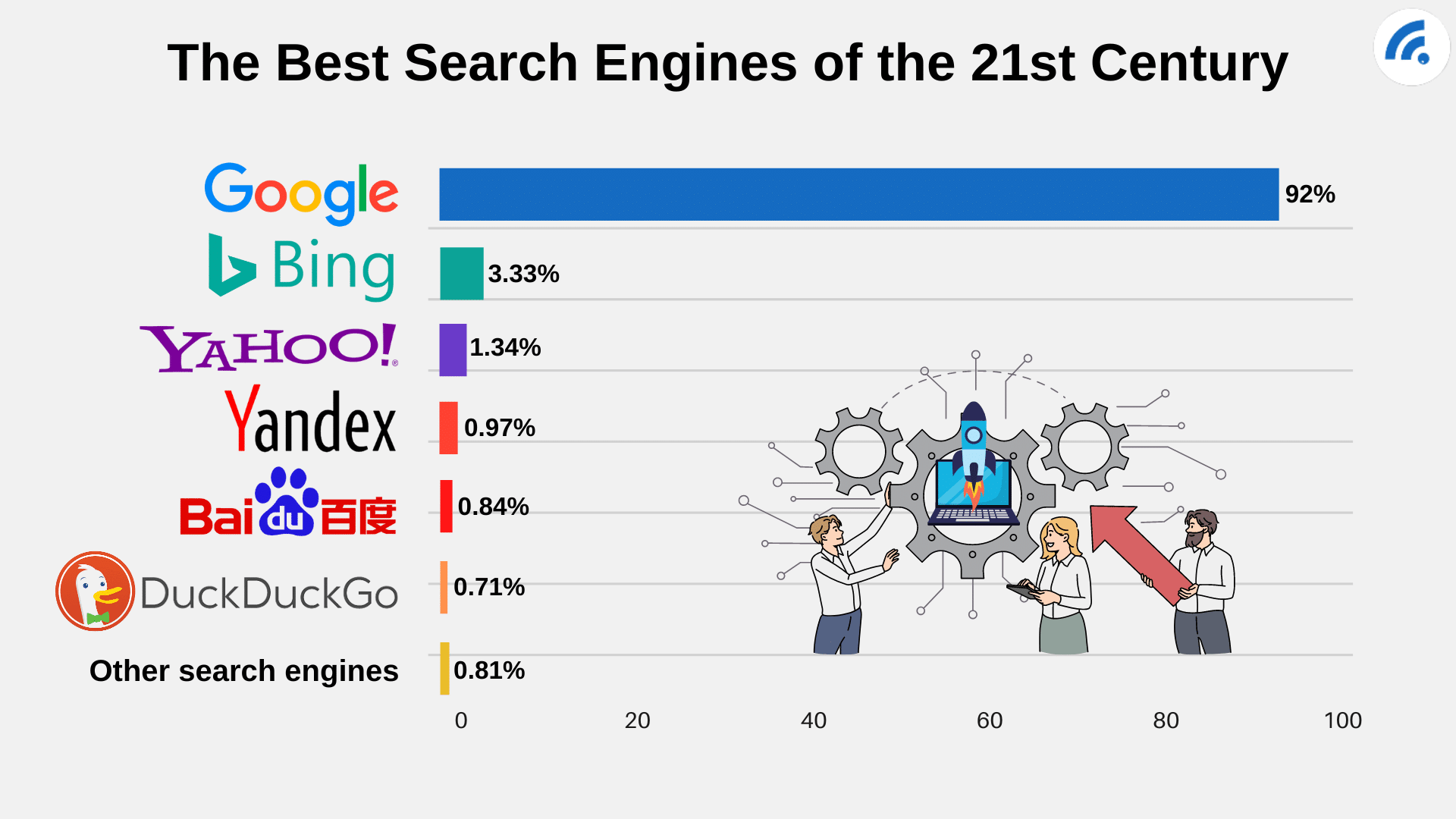Comparing Search Engines: Unveiling the Best Choice for Your Queries
Search engines are an essential component in the wide digital world, as they are responsible for linking consumers to the information that they are looking for. It is possible that determining which search engine is the most suitable for your requirements can be difficult due to the abundance of possibilities that are available. Within the scope of this in-depth investigation, we will investigate the characteristics, advantages, and disadvantages of a number of the most prominent participants in the search engine industry.
The Giants: Google, Bing, and Yahoo
1. Google – The Powerhouse of Search
Without a shadow of a doubt, Google is the search engine that is utilized the most often all around the world. Google, which is well-known for its lightning-fast and accurate results, employs advanced algorithms and machine learning in order to comprehend the objective of the user and provide information that is pertinent to that objective. A seamless user experience is achieved via the use of a clean interface and an intuitive design aesthetic.
2. Bing – The Visual Alternative

Bing, which is Microsoft’s search engine, provides an option that is visually pleasing, despite the fact that Google holds the majority of the market share. Not only does the homepage of Bing have attractive background visuals, but it also offers a one-of-a-kind daily quiz. Users who are strongly established in the Microsoft ecosystem will find it to be a comfortable choice because of its interaction with Microsoft products. https://diversewebsitedesign.com.au/website-development/
3. Yahoo – A Legacy Player
In the past, Yahoo was a search engine superpower in its own right; however, it currently relies on the search results provided by Bing. On the other hand, Yahoo continues to draw people by providing a wide variety of services, such as news, email, and entertainment websites. Yahoo may still be a feasible alternative for users who are looking for a platform that offers everything in one place.
Specialized Search Engines: DuckDuckGo and Ecosia
1. DuckDuckGo – Privacy First
DuckDuckGo has been increasingly popular due to its dedication to maintaining the anonymity of its users in an era when worries about internet privacy are rapidly expanding. Due to the fact that the search engine does not collect user data or tailor search results, it is an appealing choice for individuals who place a high value on private information. Having said that, it is possible that it may not offer the same level of tailored outcomes as competing products.
2. Ecosia – Planting Trees with Every Search

Ecosia offers a novel approach by donating a portion of its profits to organizations that work to protect the environment. In order to demonstrate its commitment to environmental responsibility, Ecosia plants trees for each and every search that it conducts. Ecosia may be tempting to users who are interested in having a beneficial impact on the environment, despite the fact that it may not even come close to matching the search capabilities of giants such as Google.
Niche Search Engines: Wolfram Alpha and Startpage
1. Wolfram Alpha – Computational Knowledge Engine
Rather than being a conventional search engine, Wolfram Alpha is a computational knowledge engine that differentiates itself from other search engines. On the contrary, it does not provide a list of web pages but rather provides responses to factual inquiries by utilizing curated data. People who are looking for precise factual information, such as students, researchers, and anyone else, will find it to be a wonderful tool.
2. Startpage – Privacy-Focused Google Alternative
Beginning with Google’s search results, Startpage combines the privacy characteristics of DuckDuckGo with those of Google. It functioned as a proxy for Google searches that prioritized users’ privacy, enabling users to take use of the precision of Google’s results without compromising their protection of their private. Those individuals who are looking for the finest of both worlds may find this to be an appealing alternative.
Conclusion: Choosing the Right Search Engine for You
An individual’s interests and priorities are ultimately the most important factors to consider when selecting the search engine that is considered to be the best. Google continues to be the most popular search engine due to its unrivaled speed and accuracy, whilst Bing is more appealing to users who value an experience that is visually attractive. Individuals who are concerned about their privacy may choose DuckDuckGo or Startpage, whereas Ecosia combines search functionality with a commitment to environmental responsibility.
Take into account the things that are most important to you, such as speed, privacy, aesthetic appeal, or making a contribution to a cause, and select the search engine that is in line with your ethical principles. In the ever-changing realm of technology, every search engine is constantly undergoing development. Therefore, it is necessary to be up-to-date on the latest upgrades and new features in order to make the most educated decision possible regarding your online inquiries.






